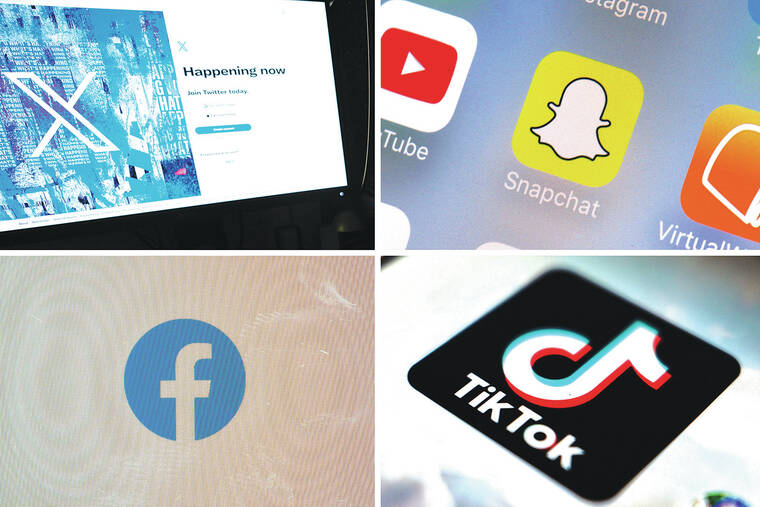Social media companies made $11 billion in US ad revenue from minors, Harvard study finds
Social media companies collectively made over $11 billion in U.S. advertising revenue from minors last year, according to a study from the Harvard T.H. Chan School of Public Health published on Wednesday.
The researchers say the findings show a need for government regulation of social media since the companies that stand to make money from children who use their platforms have failed to meaningfully self-regulate. They note such regulations, as well as greater transparency from tech companies, could help alleviate harms to youth mental health and curtail potentially harmful advertising practices that target children and adolescents.
To come up with the revenue figure, the researchers estimated the number of users under 18 on Facebook, Instagram, Snapchat, TikTok, X (formerly Twitter) and YouTube in 2022 based on population data from the U.S. Census and survey data from Common Sense Media and Pew Research. They then used data from research firm eMarketer, now called Insider Intelligence, and Qustodio, a parental control app, to estimate each platform’s U.S. ad revenue in 2022 and the time children spent per day on each platform. After that, the researchers said they built a simulation model using the data to estimate how much ad revenue the platforms earned from minors in the U.S.
Researchers and lawmakers have long focused on the negative effects stemming from social media platforms, whose personally-tailored algorithms can drive children towards excessive use. This year, lawmakers in states like New York and Utah introduced or passed legislation that would curb social media use among kids, citing harms to youth mental health and other concerns.
Meta, which owns Instagram and Facebook, is also being sued by dozens of states for allegedly contributing to the mental health crisis.
“Although social media platforms may claim that they can self-regulate their practices to reduce the harms to young people, they have yet to do so, and our study suggests they have overwhelming financial incentives to continue to delay taking meaningful steps to protect children,” said Bryn Austin, a professor in the Department of Social and Behavioral Sciences at Harvard and a senior author on the study.
The platforms themselves don’t make public how much money they earn from minors.


